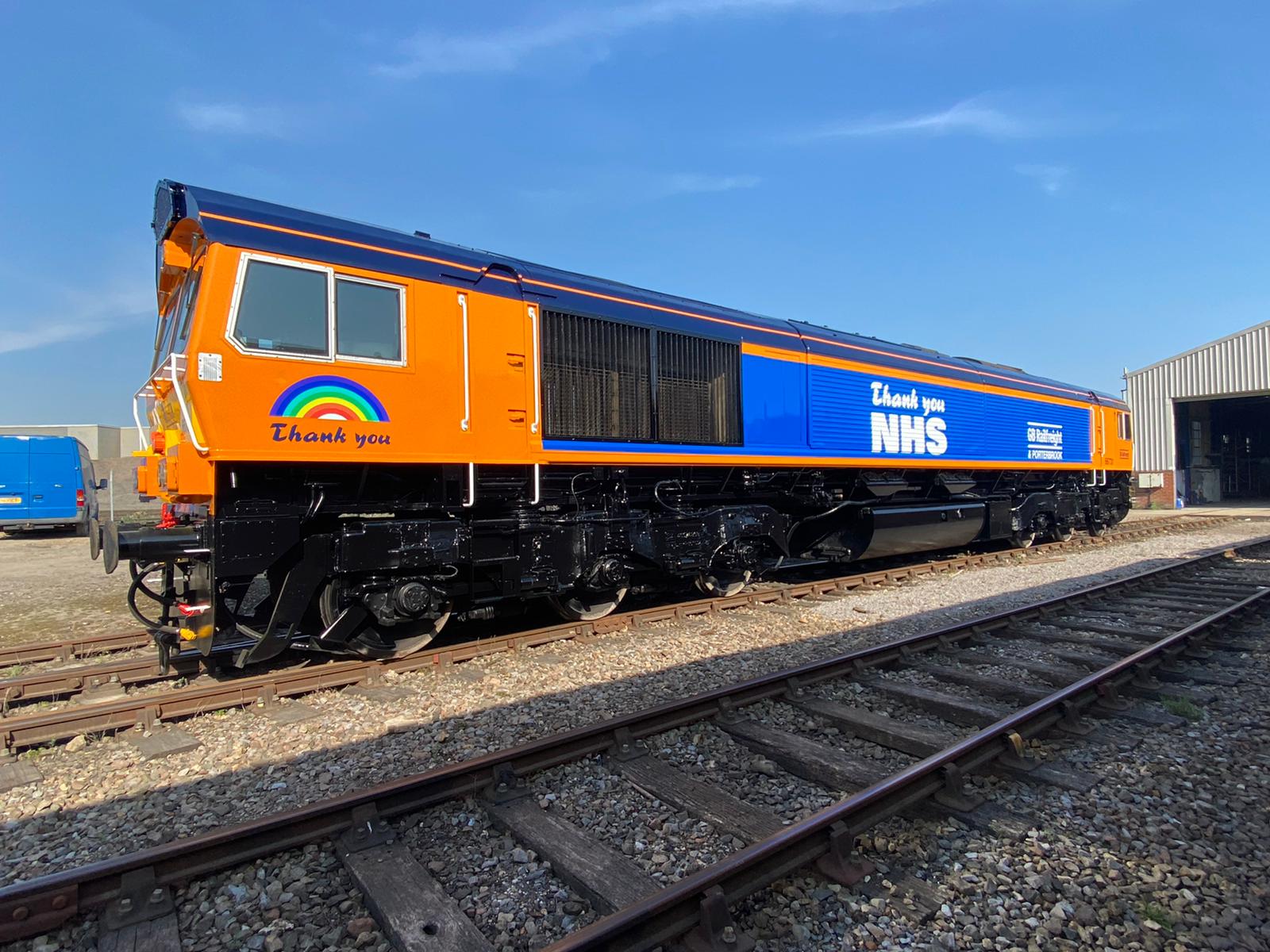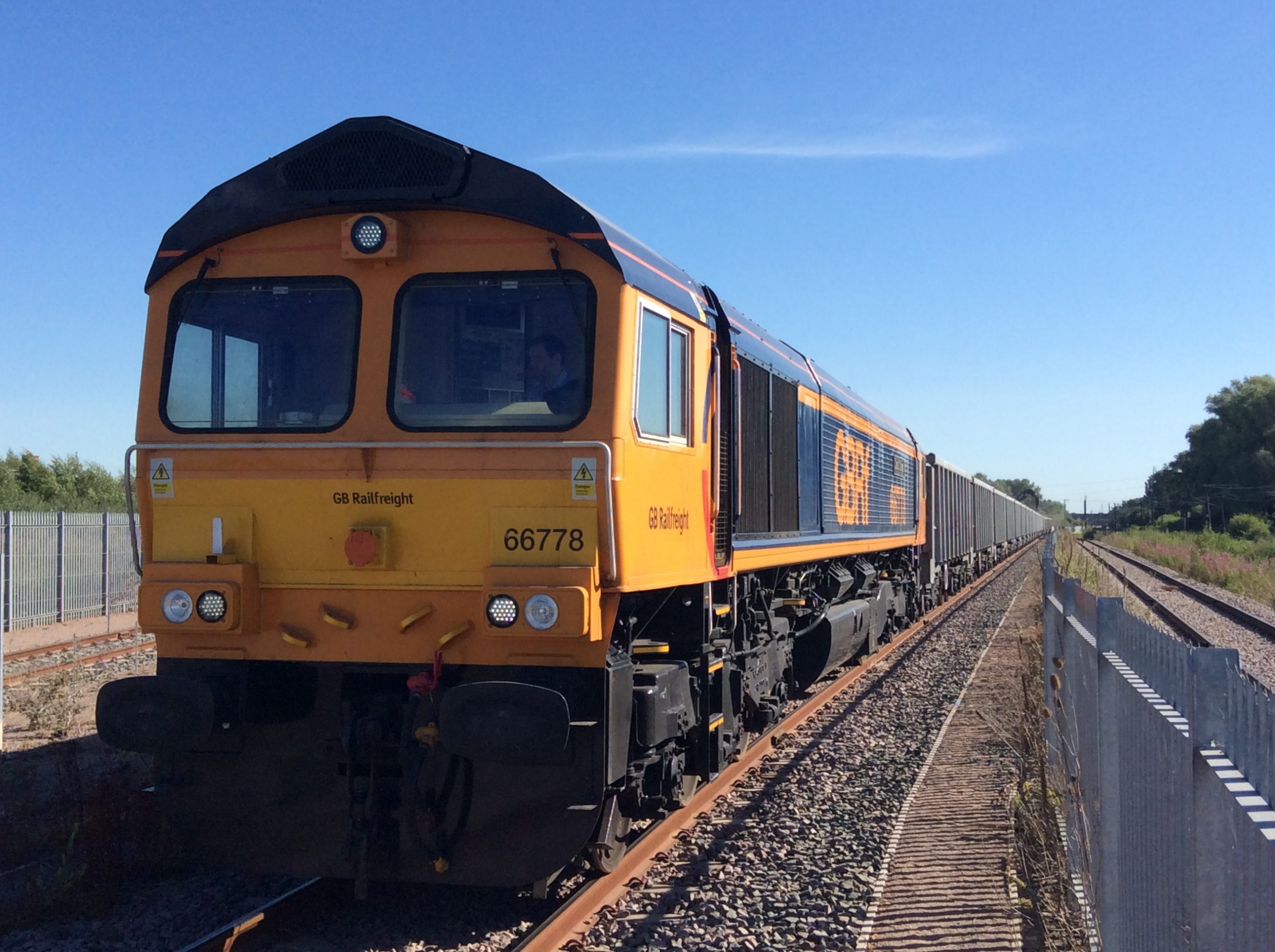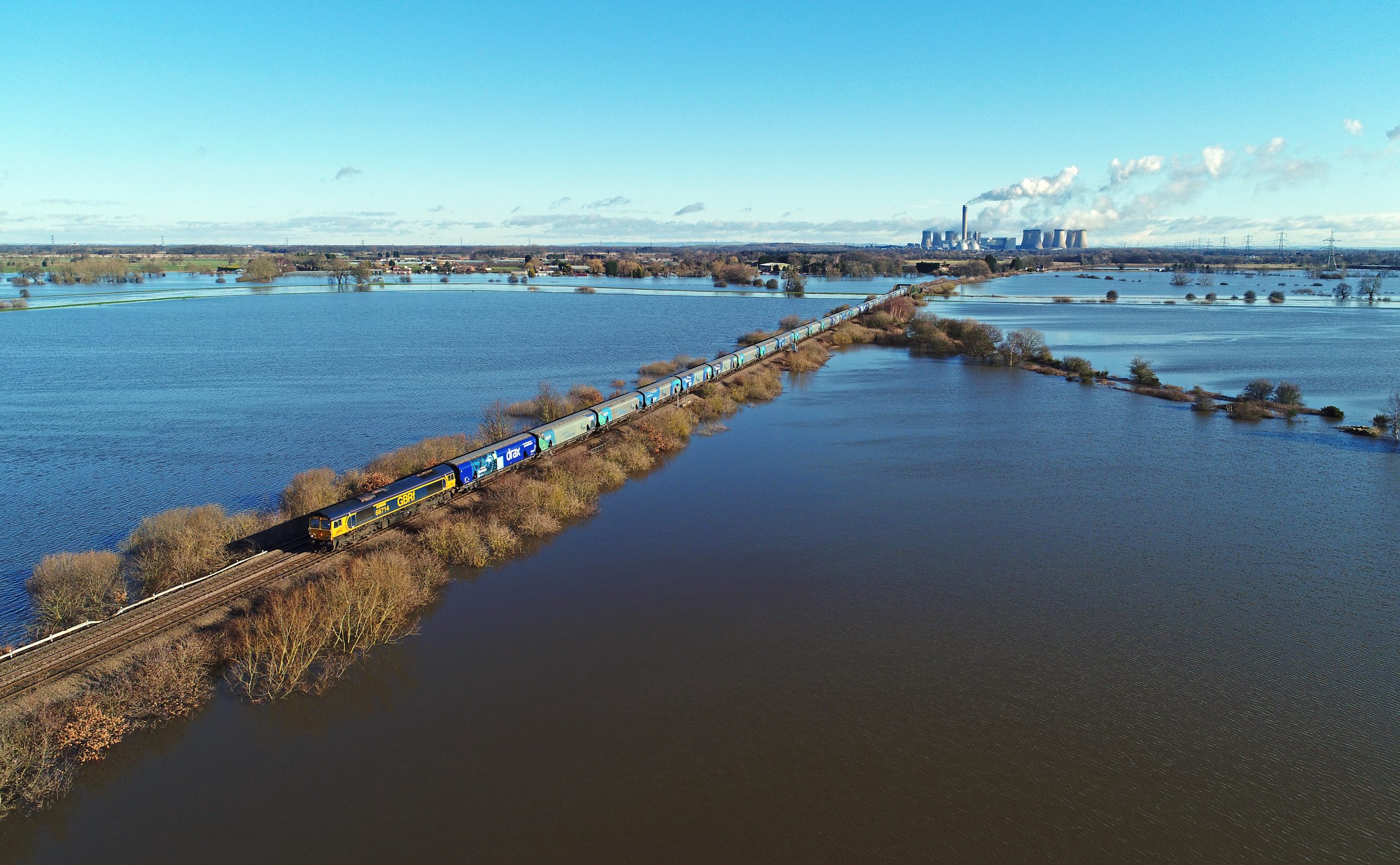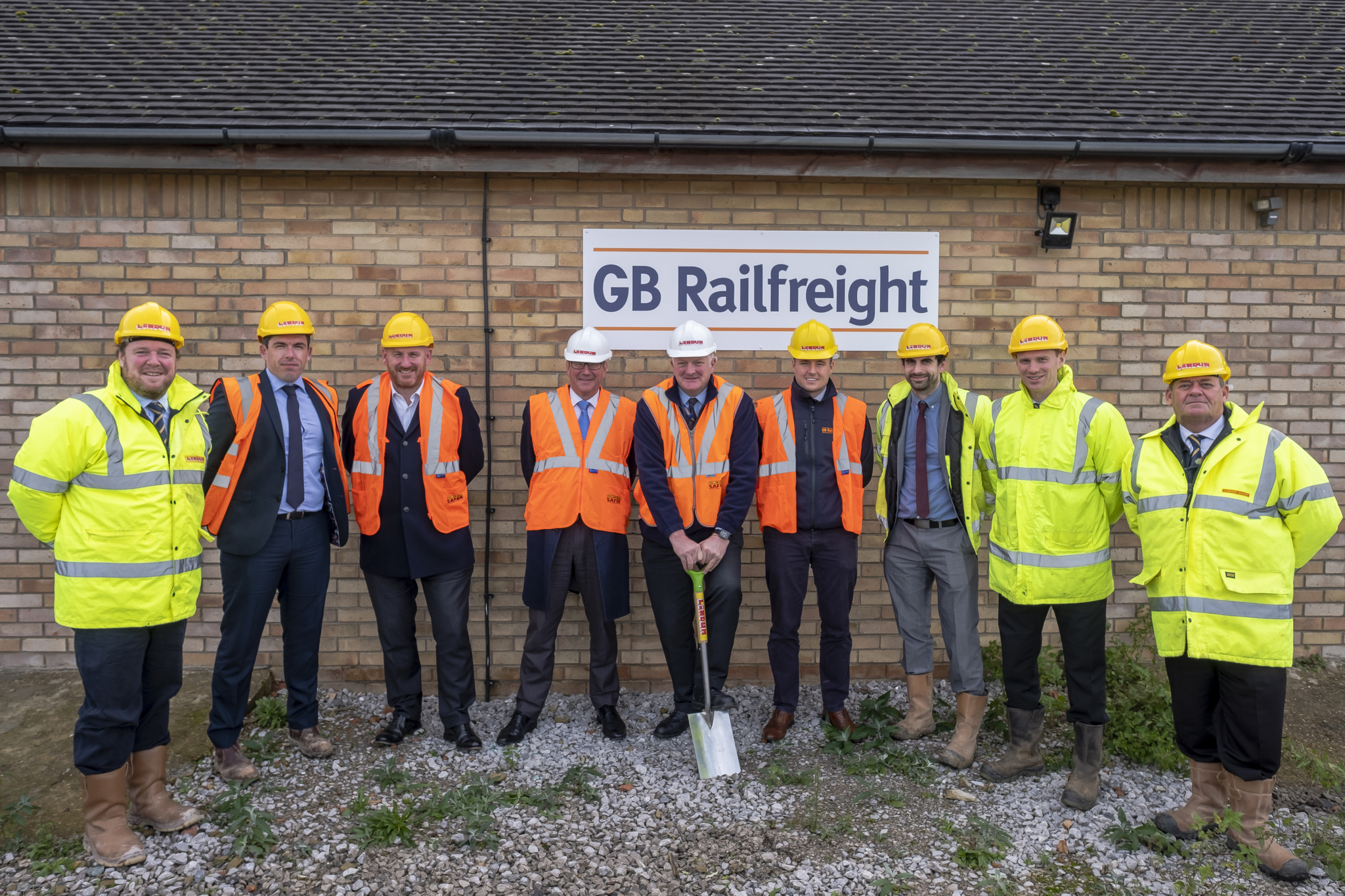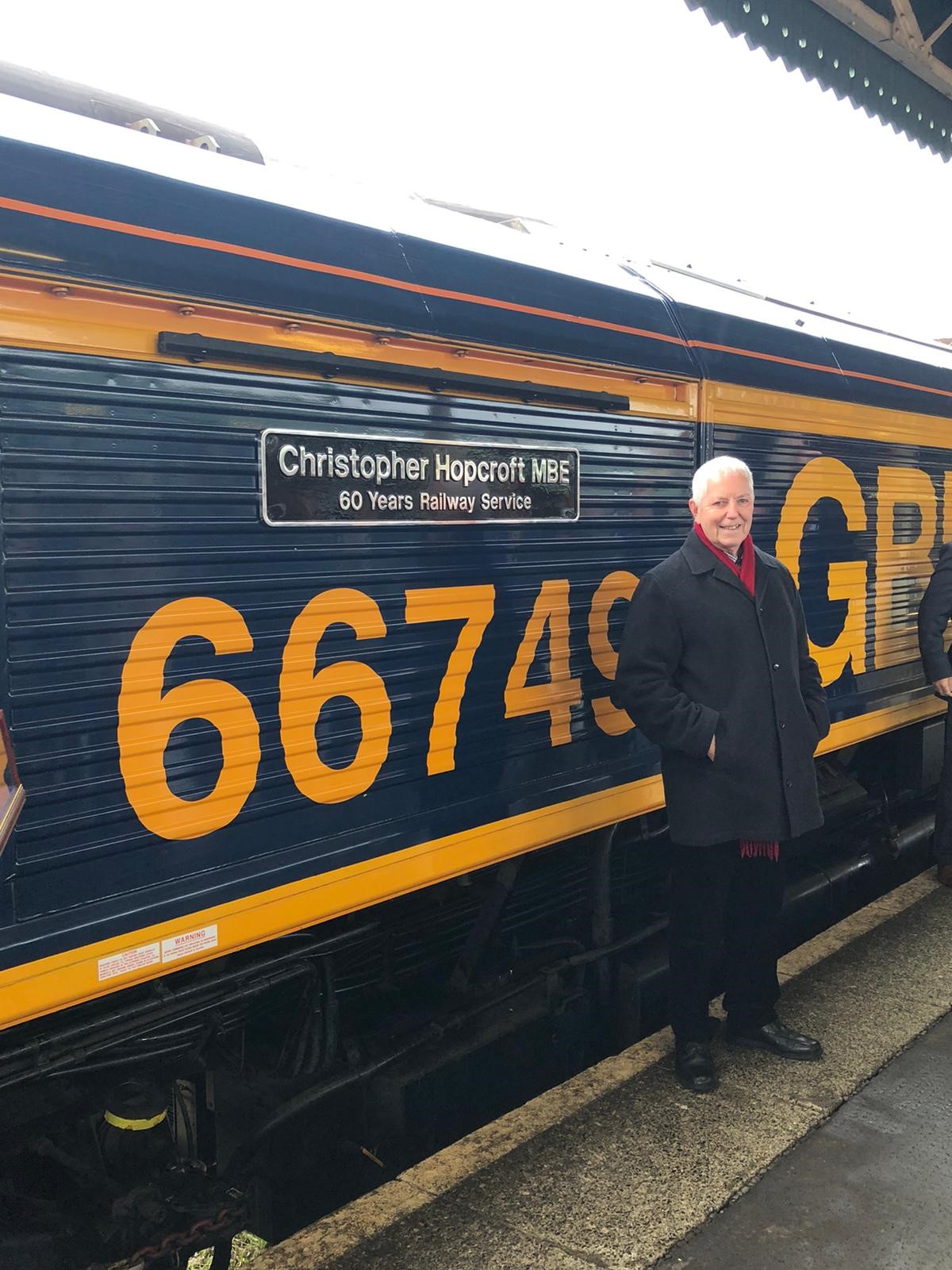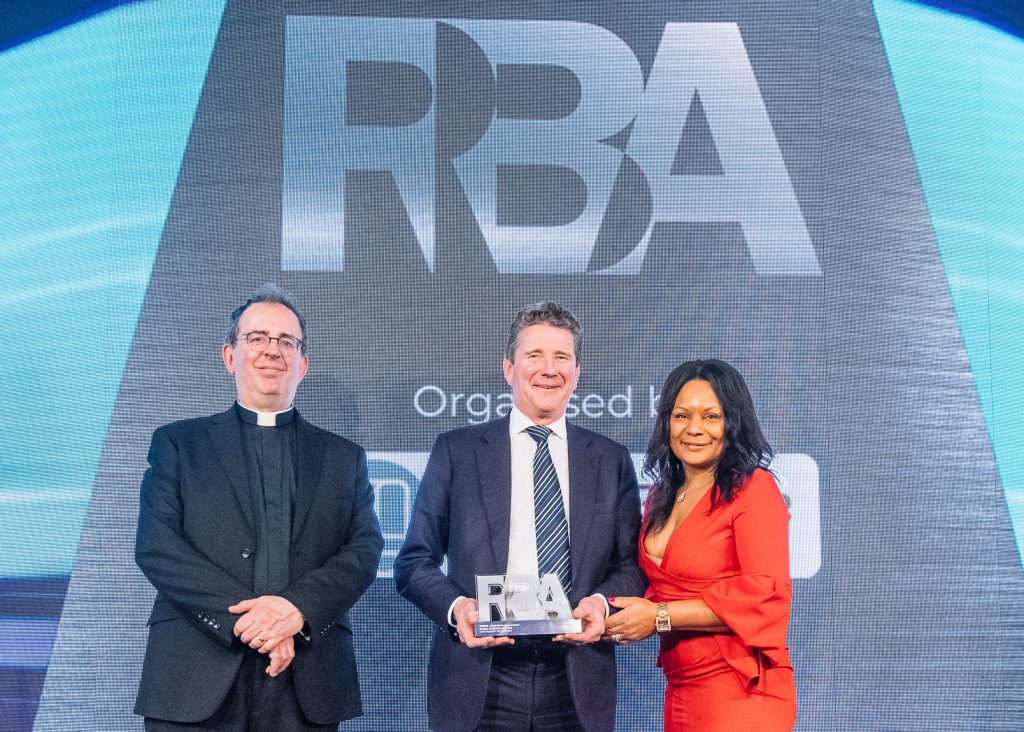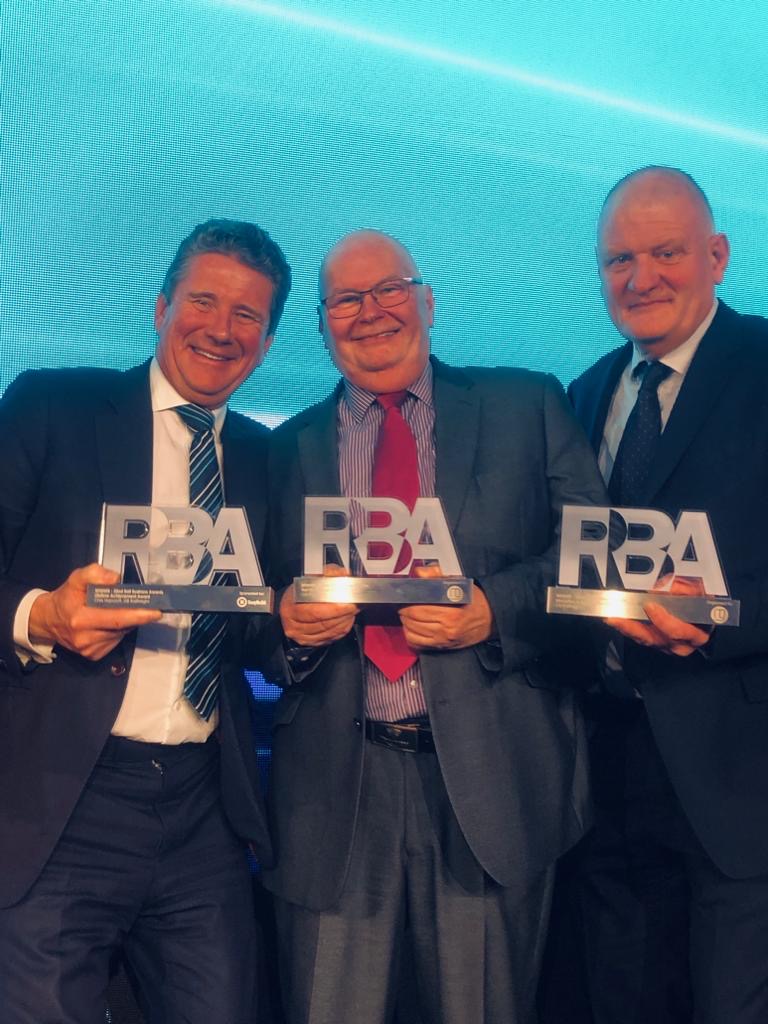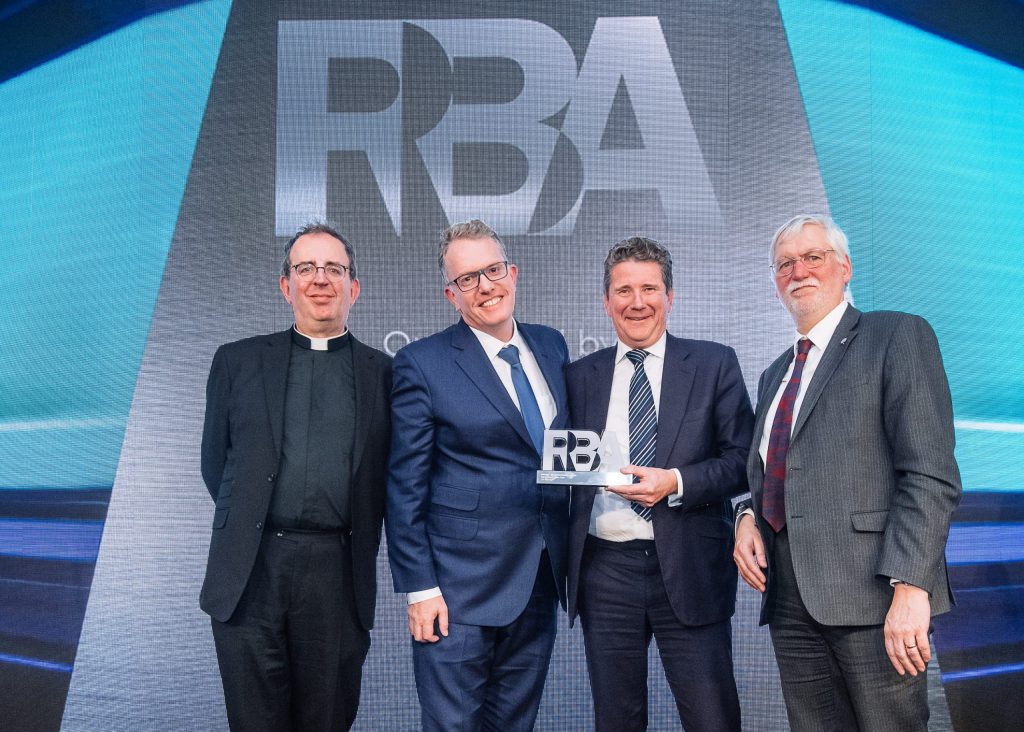Leading UK Railfreight operator, GB Railfreight and their industry partner Porterbrook have unveiled a specially repainted freight locomotive painted with the blue and white colours of the National Health Service. The unveiling was timed to be part of the weekly celebrations to thank frontline workers in our health and social care sector.
GB Railfreight, one of the UK’s largest rail freight operators, decided to mark the fifth, now weekly ‘clap,’ by repainting one of its freight locomotives and unveiling it at 8pm just as millions of people across the UK were stepping outside their front doors to thank the frontline workers who are putting their lives on the line to save countless others across our hospital and care homes.
The repainting of 66731 was co-funded by the locomotive’s owner and long-term GB Railfreight partner, Porterbrook. The painting was undertaken by Arlington Fleet Services, Eastleigh.
GBRf staff joined in with the clapping as the newly decorated locomotive was unveiled to express their gratitude to all those working to keep us safe during the ongoing COVID-19 pandemic.
GB Railfreight is playing its part in supporting the UK’s COVID-19 response by helping to keep essential services running across the country. GBRf services are playing a vital role in ensuring the continuation of supplies and trains are running from ports such as London Gateway, Southampton, Felixstowe and Teesport to distribution centres across the country. These flows are ensuring that warehouses remain stocked, and supermarkets as well as other essential retailers remain supplied.
John Smith, Managing Director of GB Railfreight said:
“Thank you to all NHS staff and carers across the country for the hard work you have been doing to keep us safe. Across the UK you are seeing week in, week out, an outpouring of love and affection of our frontline staff and we are taking a minute today to say our thanks on behalf of GB Railfreight and the rail industry.
“The unveiling of this locomotive is our way of saying thanks for all you are doing. We are inspired by you and wanted to say thank you in the usual GBRf way, by painting one of our regular Class 66 which will be travelling the length and breadth of the country to keep our economy moving during the ongoing COVID-19 crisis. Now it will also carry our message of thanks to all our carers.”
Mary Grant, Porterbrook CEO, said:
“We are delighted to support GB Railfreight in thanking NHS staff and carers for all that they do at this unprecedented time in our nation’s life. Porterbrook is also hugely grateful to all the front-line railway staff, including John’s team, who are the unsung heroes in keeping Britain’s economy moving.”

